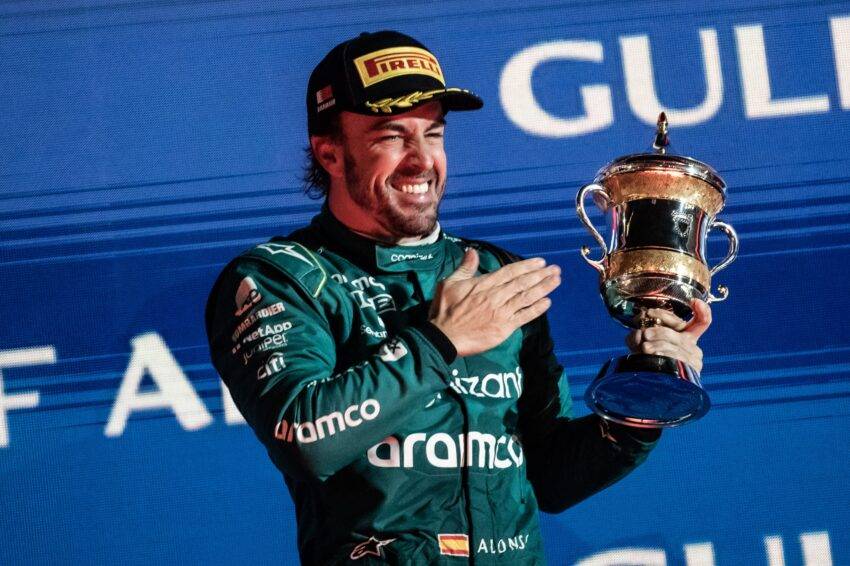Luxury automaker Aston Martin has solidified its dedication to Formula One, extending its sponsorship of its Grand Prix team until at least 2030.
In a strategic move, Aston Martin has also opted to invest in the equity of the team, reaffirming its commitment to the sport and its performance on and off the track.
The venerable 111-year-old carmaker, which has encountered various challenges since its £4 billion flotation on the London Stock Exchange in 2018, has chosen to prolong its sponsorship agreement with its independently owned F1 team from 2026 to 2030, insiders have revealed.
Based in Warwickshire, Aston Martin has further demonstrated its confidence in the team’s future by exercising an option to acquire a near-£20 million stake in the F1 outfit, formerly recognized as Force India. This team was acquired in 2018 by Canadian tycoon Lawrence Stroll, who assumed the role of executive chairman of Aston Martin in 2020.
These developments follow closely on the heels of Aston Martin’s F1 team securing an agreement with former world champion Fernando Alonso, ensuring his continued presence with the team until 2026.

These strategic decisions put to rest speculations about Stroll’s potential divestment from the F1 team amid notable successes on the racetrack. Alonso’s commendable fourth-place finish in the drivers’ world championship last season, amidst stiff competition from Red Bull, Mercedes, and Ferrari, underscored the team’s performance.
Stroll remarked, “Formula One has helped transform the nature of the business and give us the performance credentials and credibility by putting it into our road cars.”
He emphasized the pivotal role Formula One plays in Aston Martin’s brand image and customer base, attracting a younger demographic to the luxury marque.
Determined to steer Aston Martin towards financial resurgence, Stroll recently secured Bentley’s Adrian Hallmark as the company’s next CEO, a move hailed as a significant achievement given Hallmark’s success in revitalising Bentley’s fortunes.
Despite leadership changes and market uncertainties, Stroll remains a key stakeholder, owning a quarter of Aston Martin’s shares. The company’s shares have experienced fluctuations, halving in value since last summer, amidst concerns over financial performance and production targets.
Aston Martin’s recent £1.15 billion refinancing aims to allay apprehensions about its debt burden, providing a financial lifeline amid market volatility.
Details of the F1 sponsorship extension and equity investment were unveiled in Aston Martin’s annual report, reflecting the company’s long-term commitment to Formula One.
Stroll reassured stakeholders about the resolution of technological challenges, asserting, “All the software problems are behind us.”
In addition to his stake in the listed automaker, Stroll is a majority owner of the F1 team, alongside prominent figures such as JCB owner Lord (Anthony) Bamford and former McLaren F1 boss Martin Whitmarsh.
The 64-year-old made his fortune by capitalising on the success of his father, who brought retail brands such as Pierre Cardin and Ralph Lauren to Canada. His son, Lance, is one of two drivers who race for Aston Martin’s F1 team. Father and son have featured prominently in Drive to Survive, the popular Netflix documentary about the sport.
Aston Martin’s journey to profitability has been a tumultuous one, marked by ownership changes and market fluctuations. The company’s flotation in 2018 aimed to signal a turnaround, yet investor skepticism persisted. Stroll’s entry into Aston Martin in 2020, along with strategic partnerships with investors like Saudi Arabia’s Public Investment Fund, Chinese carmaker Geely, and German powerhouse Mercedes, underscores a renewed vision for the iconic British marque.
